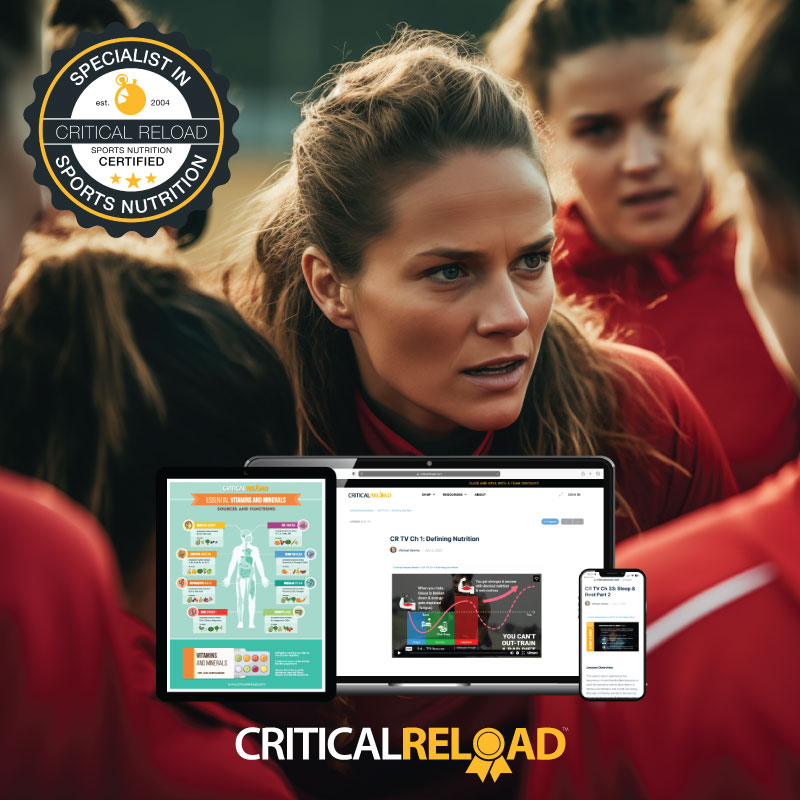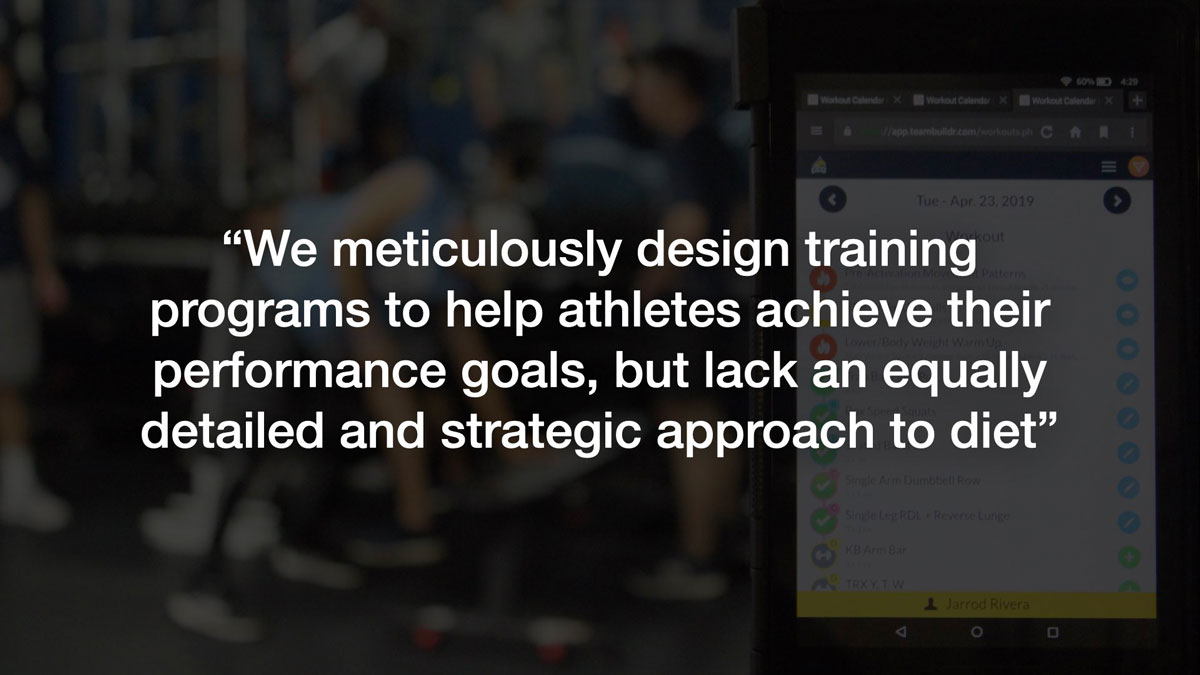Welcome to Part 2 of the Top 5 Coaching Mistakes Undermining Athlete Nutrition. In this installment, we’ll delve into common pitfalls that can hinder your athletes’ nutritional success and provide actionable insights to refine your approach. If you missed Part 1, where we discussed the contrasting regulations of supplements and food, you can catch up here.
No one wakes up in the morning saying to themselves, “I hope I eat like crap today.” This statement captures a fundamental truth about human behavior and intentions. People generally want to make good choices, especially when it comes to their health and well-being. However, many struggle with their diet not because they lack the desire to eat well, but because they lack the proper guidance—a good map—to navigate their nutritional needs. This is where a comprehensive understanding and structured approach to nutrition can make a profound difference.
Just as a strength coach meticulously designs a training program to help athletes achieve their performance goals, there is a crucial need for an equally detailed and strategic approach to diet. A well-designed training program, or map, provides athletes with a clear path to follow, detailing exercises, sets, reps, and progression plans. It is crafted based on scientific principles and tailored to the individual needs of the athlete. This map is essential for guiding athletes towards their performance objectives, ensuring they train effectively and safely.
Unfortunately, when it comes to diet, similar meticulous planning is often overlooked. Many athletes and individuals are left to navigate their nutritional needs with little to no structured guidance. The focus on diet as it relates to health, wellness, performance, and recovery is frequently minimal, despite its critical importance. Nutrition plays a fundamental role in an athlete’s ability to perform, recover, and maintain overall health. Without a proper nutritional map, even the best training programs can fall short of their potential.
The gap between well-designed training programs and haphazard dietary practices highlights the need for a more integrated approach. A strength coach who understands the interplay between nutrition and training can create a comprehensive plan that aligns dietary practices with training regimens. This integrated approach ensures that athletes receive the nutrients they need to fuel their workouts, recover effectively, and sustain long-term health.

This is where the Critical Reload Edge Specialist in Sports Nutrition Certification becomes invaluable. The certification equips professionals with the knowledge and skills to create detailed nutritional maps for their athletes, much like they would for training programs. Participants learn how to develop personalized nutrition plans that consider the unique needs of each athlete, ensuring they receive optimal nourishment to support their goals.
Key benefits of the certification include:
- Customized Nutrition Plans: Professionals learn to tailor nutrition plans to individual athletes, considering their specific performance goals, training intensity, and recovery needs. This personalized approach maximizes the effectiveness of both diet and training.
- Integrated Training and Nutrition: The certification emphasizes integrating nutritional strategies with training programs. Professionals will understand how to synchronize dietary intake with workout schedules to enhance performance and recovery.
- Education and Empowerment: The program’s graduates are equipped to educate athletes about the importance of nutrition, empowering them to make informed choices. Athletes gain the knowledge to understand how their diet impacts their performance and overall health.
- Holistic Approach to Wellness: The program promotes a holistic view of health and wellness, recognizing that diet and training are interconnected. Professionals can help athletes achieve a balanced and sustainable approach to their fitness and health by addressing both aspects.
- Evidence-Based Practices: The certification provides up-to-date, evidence-based information on sports nutrition, ensuring professionals are well-informed about the latest research and best practices. This knowledge enables them to create effective and scientifically sound nutrition plans.
Just as no one wakes up intending to eat poorly, no athlete should be left without a proper nutritional map to guide their dietary choices. Critical Reload Edge Specialist in Sports Nutrition Certification bridges this gap, providing the tools and knowledge necessary to create comprehensive, integrated plans that support both training and nutrition. By doing so, professionals can help athletes reach their full potential in performance, health, and recovery.
In conclusion, refining your approach to nutrition with the same precision and care as your training programs can significantly enhance your athletes’ overall performance and well-being. Continue this series with Part 3, where we’ll discuss the pitfalls of using social media nutrition charts in your weight room to educate athletes. Make sure to tune in!
